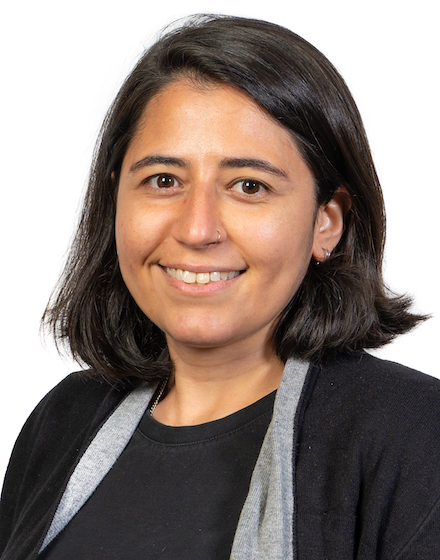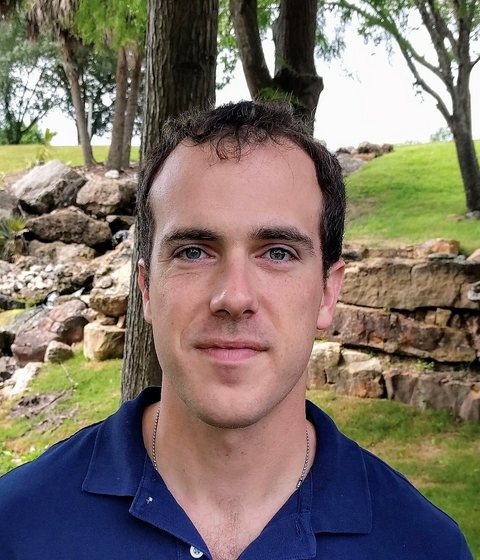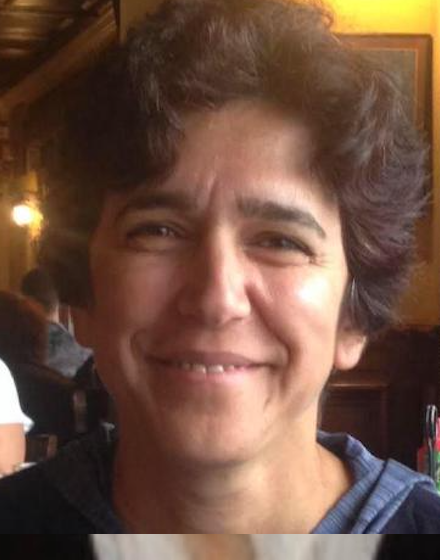We are thrilled to bring you this first edition while we celebrate our 20th anniversary, packed with exciting updates and information about the OBO Foundry and its community.
In this issue, you will find a range of content, including general announcements, training opportunities, and details about recent and upcoming events. Our goal with the OBO Foundry’s Quarterly Newsletter is to inform community members about the latest activities and advancements within the OBO Foundry.
Here we’ll announce the addition of new members to our community, praising their contributions and expertise. In future issues, we will shine a spotlight on some of our current members, fostering a sense of connection and cooperation.
Your input and suggestions are highly valued, and we eagerly invite you to share your thoughts and ideas. Please get in touch with the OBO Operations Committee anytime!
Thank you for reading, and we hope you enjoy the inaugural edition of the OBO Foundry Newsletter.
Best regards, The OBO Foundry Operations Committee.
Highlights
The OBO Foundry celebrates its 20-year anniversary
The OBO Foundry, established in 2003, is an international collaborative effort dedicated to developing and promoting high-quality, interoperable ontologies for biology, biomedicine, and related domains. Guided by principles of openness, collaboration, and best practices, the OBO Foundry has played a crucial role in advancing the field of biomedicine. By fostering the creation of ontologies that facilitate data exchange, knowledge discovery, and cooperation, the initiative has significantly contributed to the standardization and integration of ontologies. Its impact is evident in the broad adoption and utilization of its ontologies, which have become indispensable tools in biomedical research and applications. The OBO Foundry has attracted a diverse community of researchers, developers, and users from various biological and biomedical disciplines, reinforcing its mission of advancing data integration and analysis in research and clinical practice.
Ontologies
In this inaugural edition of the OBO newsletter, we want to remind you of the procedure for requesting the inclusion of a new ontology in the OBO Foundry:
- Clearly define the ontology’s purpose and scope.
- Review OBO Foundry Principles for alignment.
- Check existing ontologies to avoid duplication.
- Contact the OBO Foundry community to express interest and seek feedback.
- Develop the ontology based on discussions and best practices.
- Submit the ontology for review and feedback.
- If accepted, add to the website and ensure ongoing maintenance. For detailed instructions, refer to the official documentation or engage with the OBO Foundry community.
We evaluate new ontologies for possible inclusion in the OBO Foundry on an ongoing basis. These carefully reviewed and curated ontologies cover different biomedical domains, enhancing data integration and collaboration within the community.
The list of topics for the 186 active ontologies accepted by the OBO community as of 2023 include agriculture, anatomy and development, biological systems, chemistry and biochemistry, diet, metabolomics, and nutrition, environment, health, information, information technology, investigations, microbiology, organisms, phenotype, and simulation. These diverse topics highlight the broad scope of ontologies developed and accepted by the OBO community, contributing to improvements in data integration and knowledge discovery in the biomedical domain.
Recently accepted ontologies include:
Spotlight on Ontologies
In every newsletter, we would like to highlight one or two ontologies from the OBO Foundry family to promote their use. Today, we introduce the Core Ontology for Biology and Biomedicine (COB) and the OBO Metadata Ontology (OMO), two ontologies fundamental to the vision of OBO interoperability.
- Core Ontology for Biology and Biomedicine (COB): An upper level ontology for the domain of Biology and Biomedicine. The OBO community has produced a large number of ontologies that cover biological and biomedical entities from anatomy, chemistry, assays and chemicals to diseases and phenotypes. While many ontologies have aligned with the Basic Formal Ontology (BFO), we have been lacking an easy to understand top-level that can be used by domain experts. The goal of COB is to organize the core types of biological entities into a small top level ontology, serving as an upper layer for biological data integration and querying. Establishing a basic community-wide agreement on the semantics of these core entities is a difficult task, but central for a core vision of OBO: decentralized development of interoperable ontologies. To contribute to the discussion, use the COB issue tracker.
- OBO Metadata Ontology (OMO): The OBO Metadata Ontology (OMO) defines all the standard properties used by OBO ontologies for both on ontology and term level. The goal of OMO is complementary to that of COB: to ensure that OBO wide, people that need to annotate metadata such as synonyms, contributors, term tracker items and ontology licenses do so using the exact same property, thereby facilitating interoperability. OMO is governed by the community consensus, which means that anyone can suggest changes and editions and put them to a vote. To propose new properties for inclusion, please use the OMO issue tracker.
Members and Volunteers
Our vibrant community of OBO Foundry members and volunteers is the driving force behind our success. Comprising professionals from different fields, they contribute their time and expertise to develop and assess high-quality ontologies and advance principles and best practices for interoperable ontologies. Their collaborative efforts support data integration, knowledge discovery, and interdisciplinary collaboration.
OBO is led by a volunteer team consisting of ontology maintainers and stakeholders (the ‘OBO operations committee’). This team performs multiple duties, including maintaining the site, stewarding the principles, and curating ontology metadata. The committee is divided into various subgroups which are concerned with the following problems:
- The Technical Working Group is involved in maintaining the technical infrastructure for the OBO Foundry. This includes establishment of policies to be implemented in common tools, website maintenance, calls, etc.
- The Editorial Working Group is involved in reviewing OBO Foundry ontologies and setting policies. Primary tasks are to conduct reviews, as well as all activities that enable that process, such as tool building for automated validation, website maintenance of the review results, or leading calls and taking notes.
- The OBO Foundry Outreach Working Group is involved in public relations for the OBO Foundry. This includes monitoring and following up discussions on mailing lists, preparing documentation and educational materials, and presenting OBO Foundry activities at workshops, conferences, or other venues.
- The OBO Academy is a community run education resource concerned with documenting many best practices that go beyond OBO Principles, and provide extensive training materials for all the technology developed and supported by the technical working group.
Recently, the OBO Operations Committee introduced a more refined role system in the OBO Foundry which clearly documents the work that needs to be performed on an ongoing basis. The new roles and their responsibilities are listed on the website.
By collaborating across these different areas and pulling together volunteers from a wide range of expertise, the OBO operations committee actively supports the vision of the OBO Foundry. The Standard Operating Procedure to become a member of the committee (still in development) is documented here. Reach out on Slack (obo-community channel) or via our obo-discuss mailing list if you are interested in joining.
New Volunteers
In this section we introduce the volunteers that recently joined the OBO Operations Committee. Mathias Brochhausen recently rejoined the OBO Operations Committee, after a period of absence. Welcome back Mathias!
| Picture | Name | GitHub | Affiliation | Country | Role |

|
Anita R. Caron | anitacaron | European Bioinformatics Institute (EMBL-EBI), Cambridge | UK | OBO Dashboard Maintainer |

|
Deepak R. Unni | deepakunni3 | SIB Swiss Institute of Bioinformatics, Basel | Switzerland | Registry Metadata Steward |

|
Erik Whiting | erik-whiting | University of Nebraska, Lincoln, NE | USA | OBO Website Coordinator |

|
Leila Kiani | LK112019 | National Institutes of Health (NIH) | USA | OBO Newsletter Steward |

|
Paul Fabry | pfabry | Université de Sherbrooke, Québec | Canada | OBO New Ontology Request (NOR) Manager |

|
Ray Stefancsik | rays22 | European Bioinformatics Institute (EMBL-EBI), Cambridge | UK | Technical Working Group OBO Operations liaison |
Decisions Made and Important Updates
Decisions regarding changes to OBO principles
OBO Foundry publishes a set of principles that capture ontology best practices and that are used to assess new ontologies that wish to be included. We continuously review, refine, and clarify our principles to ensure that they support our commitment to ontological excellence. Below are some recent updates.
- NEW Principle 13 (Notification): Announcing major changes to stakeholders ahead of release. Principle 13 of the OBO Foundry emphasizes the importance of announcing significant changes to relevant stakeholders and collaborators before the ontology’s release. This proactive notification allows stakeholders to provide input on upcoming changes and update any dependencies affected by those changes.
- NEW Recommendation that ontology developers include guidelines and instructions for making contributions to ontology terms and discussions. Text to this effect has been added to Principle 8 (Documentation), Principle 10 (Commitment to Collaboration), and Principle 20 (Responsiveness).
- NEW Table of Contents added to principles pages. This is to aid users in finding information of interest.
- CLARIFICATION The OBO Foundry has made explicit the (previously implied) requirement for English language definitions (Principle 6). This was done both for pragmatic reasons (e.g., to enable reviews of new ontologies), and to match the similar requirement for English language labels and other fields (Principle 12). Discussions on how best to use/specify other languages is ongoing.
Updates from the technical working group
- On the 3rd June, we provisionally activated https support for our ontology PURLs. This means that from now on, you can access OMO not only through http://purl.obolibrary.org/obo/omo.owl, but also https://purl.obolibrary.org/obo/omo.owl! Follow the discussion here. Note that this does not extend to the use of term identifiers. While this identifier now resolves: https://purl.obolibrary.org/obo/OMO_0002000, you MUST NOT use https IRIs in your ontology, because https://purl.obolibrary.org/obo/OMO_0002000 and http://purl.obolibrary.org/obo/OMO_0002000 are fundamentally different things on RDF level.
- New versions of ROBOT (1.9.4) and the Ontology Development Kit (ODK, 1.4.1) were made available on the 23rd May 2023. ROBOT and ODK are two tools extensively supported by the OBO Technical Working Group.
Ongoing Discussions
Here, we list some of the more important discussions happening around the OBO-sphere:
- The definition of a “disease” class in COB is, not surprisingly, one of the hardest problems to get agreement on. The discussion has stalled, and needs to be re-invigorated.
- What should happen on 01.01.2024 when passing the Dashboard becomes mandatory? Get involved in the discussion!
- Some of us would like to visually separate permanently defective (e.g. unparseable, inconsistent) ontologies from the rest. Join the discussion.
- We are discussing the Standard Operating Procedure for activating a new OBO Principle!
- We are discussing the introduction of a new ontology status, unresponsive, for ontologies that do not respond to any of the regular communication channels.
New Version of Protégé is now available
Protégé is a popular open source ontology editor used by many ontology developers within and beyond the OBO Foundry. A new release of Protégé 5.6.2 is now available. You can download it from: https://github.com/protegeproject/protege-distribution/releases/tag/protege-5.6.2. Note that it is recommended that all OBO Foundry ontology editors use this latest version of Protégé for editing.
This version primarily addresses a bug affecting macOS users who could not save files due to the absence of the file-saving dialog (ticket #1106).
Rest assured, the new release maintains compatibility with the OWL API 4.5.25, ensuring a seamless upgrade without any serialization issues. The Protege developers appreciate your feedback to help identify bugs, which allows improvements to Protege for all users. Bugs and feature requests can be reported here: https://github.com/protegeproject/protege/issues or via the Protege Slack channel in the OBO Foundry workspace.
Protege is now developed under a community contribution model. Much gratitude goes to Damien Goutte-Gattat and Huseyin Kir for their work to help deliver this new release and implement these fixes.
Updates around OBO Academy
The OBO Academy is an educational initiative that supports ontology users and developers in the OBO community. It offers freely available, online, self-paced training and educational resources to enhance ontology literacy and foster collaboration. With a focus on knowledge sharing and community engagement, the OBO Academy invites participation and contributions to enrich its educational offerings. All of the content is available in a GitHub repository and anyone is welcome to make pull requests to suggest new content or edit existing content. Please join the conversation on the OBO Academy Slack channel.
Promotion of OBO Academy Materials
The National Student Data Corps, an initiative within the Northeast Big Data Innovation Hub, focuses on leveraging data for societal challenges. They offer big data training materials, freely available at https://nebigdatahub.org/nsdc/. A new collaboration was recently formed between Florence Hudson from Columbia University and the OBO Academy team, and OBO Academy resources will be shared on this site, as well as on Columbia University’s COVID Info Commons site.
International Society for Biocuration Career Awards
The International Society of Biocuration (ISB) has recently announced the winners for the prestigious Early Career Award, Advanced Career Award, and Lifetime Achievement Award. We are delighted to announce that two of the winners of this year’s “Excellence in Biocuration Award” are active contributors to the OBO Foundry: The Early Career Award was given to Charlie Hoyt, and the Advanced Career Award was given to Nico Matentzoglu.
Charles Tapley Hoyt, a Research Fellow at Harvard Medical School, is an exceptional biocurator. He leads the development of community datasets and databases like the Bioregistry, Biomappings, and Chemical Roles Graph. He actively contributes to the OBO Foundry ontology community and related standards development, including the SSSOM standard. Charlie’s active engagement in the Biocuration community includes co-chairing the recent Biocuration 2023 conference.
Nicolas Matentzoglu, a celebrated figure in bio-ontology and biocuration, passionately advocates open science. He co-leads the OBO Academy and leads the development of the Ontology Development Kit (ODK). Nico also spearheads the development of the Simple Standard for Sharing Ontological Mappings (SSSOM). His efforts have attracted and united diverse contributors in the biocuration community.
We congratulate Charlie and Nico on their well-deserved awards!
Events
OBO Academy: Monarch Seminar Series (ongoing)
Monarch OBO Training is a virtual training session that is offered biweekly on Tuesdays at 9 am PT/12 pm ET; it provides semantic engineering training targeted towards members of the Monarch Initiative and OBO community (all are welcome to participate). The sessions focus on various relevant topics which are outlined here: https://oboacademy.github.io/obook/courses/monarch-obo-training/#schedule. Recent sessions focused on using ChatGPT in ontology workflows and modeling with taxon constraints. Videos of past events are available online. Join the obo-academy channel in the OBO slack to learn more.
ICBO OBO Tutorial 2023: Using and Reusing Ontologies
Date: Exact date TBD. Workshops/tutorials will be held August 28-30, 2023
Location: In person at ICBO2023 in Brazil and virtual
Organizers: Nicole Vasilevsky and Nico Matentzoglu
The ICBO OBO Tutorial 2023, “Using and Reusing Ontologies,” is targeted towards novice and experienced ontology users and developers. The tutorial, a longstanding tradition at ICBO, introduces OBO and ontologies in general and will include more advanced topics including using ROBOT and ChatGPT.
Workshop on Ontologies for Infectious and Immune-mediated Disease Data Science (OIIDDS)
Announcing the first workshop on Ontologies for Infectious and Immune-mediated Disease Data Science (OIIDDS). As part of ICBO 2023 workshops & Tutorials, this interactive event at Brasilia University in Brazil brings together experts in ontologies, data science, infectious disease, and immunology. We invite researchers to submit their work on ontologies, knowledge graphs, and applications. Find more details on submission guidelines here. Take advantage of this opportunity to explore cutting-edge developments in this field.
Ways to be part of the OBO Foundry community
There are many ways to be part of the OBO Foundry community, beyond using our website to find ontologies of interest. For example:
- Join the obo-discuss mailing list (low-traffic, no spam)
- If you are interested in the technical aspects, you can also join the obo-tools mailing list
- Join the conversation in our Slack workspace
- Use our public issue tracker to report a problem you discovered on obofoundry.org or request a new feature
- Note that most issues relating to individual ontologies (e.g., a request to add a new term) should be added to the issue tracker for the specific ontology
- Propose a fix to an issue you see on our issue tracker (this is done via a GitHub Pull Request, which will be checked and approved by someone in the Foundry). Since all of our code is publicly readable, you may be able to pinpoint where a bug fix needs to go.
- Request that your ontology be considered for inclusion in the Foundry
- If you want to take your contributions to OBO Foundry to the next level, you can nominate yourself to be considered for the OBO Operations Committee. There are various roles in which you can contribute, including assisting with the production of this newsletter.